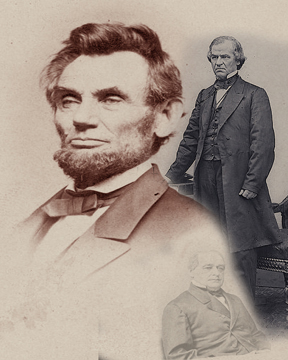 There are days that
make a mark on our world. There are decisions that are made that cause a
series of events and things are never quite the same afterwards. This is the
157th anniversary of one of those days. On April 14,
1865, President Abraham Lincoln was shot by John Wilkes Booth while he watched
a play at Ford’s Theater in Washington. Lincoln’s assassination would forever
change our nation and our world. The odd thing about that fateful night,
Lincoln’s wife, Mary, had asked him to stay in that night and skip the theater.
He thought it would look bad if they didn’t show up. It had been announced in
the newspaper they would be in attendance. Despite his wife’s pleadings, he decided
to go to the play. Some would call it the worst decision of his presidency.
There are days that
make a mark on our world. There are decisions that are made that cause a
series of events and things are never quite the same afterwards. This is the
157th anniversary of one of those days. On April 14,
1865, President Abraham Lincoln was shot by John Wilkes Booth while he watched
a play at Ford’s Theater in Washington. Lincoln’s assassination would forever
change our nation and our world. The odd thing about that fateful night,
Lincoln’s wife, Mary, had asked him to stay in that night and skip the theater.
He thought it would look bad if they didn’t show up. It had been announced in
the newspaper they would be in attendance. Despite his wife’s pleadings, he decided
to go to the play. Some would call it the worst decision of his presidency.
I was traveling
recently and was listening to a radio show where the best and worst presidents
were debated between the two hosts of the show. They both agreed that Lincoln
was the best president in history. I am an amateur historian of sorts. I have
always found Lincoln a fascinating character, so much so that I have visited
every Lincoln historical site that I can find. I have been to Hodgenville,
Kentucky, where he was born; the property where his family moved to in southern
Indiana when he was 7 years old; the recreated village of New Salem, Illinois
where he lived when he set out on his own at age 21; and his home in
Springfield, Illinois where he and his wife Mary and their four sons lived
until he became president. I have stood where he made speeches and have visited
his tomb. I have read books on his whimsical stories, his debates and his
strategy to keep the United States together. Few would argue that Lincoln is at
the top of the list.
When it came to the
worst presidents, both of these hosts said they would pick the two men who were
on either side of Lincoln’s presidency to be the worst: James Buchanan for his
policies that brought about the Civil War and Andrew Johnson for his bungling
of reconstruction after the war.
Lincoln thought
differently than most people around him. He had trouble keeping those that
served under him moving in the same direction with him. That included military
leaders. When one of his generals, George McClellan, announced he would run
against Lincoln for the presidency in 1864, Lincoln made a decision for
political reasons. He dumped his first term vice president, Hannibal Hamlin: a
staunch abolitionist and Republican from Maine, and replaced him with Andrew
Johnson, a southern Democrat who had stayed loyal to the Union, but did not
share Lincoln’s views on slavery. Lincoln chose Johnson to swing Democrats to
his side. In the long run, it was a disastrous decision. It helped him win a second
term in office, but it was a reversal for his plan to reconstruct the South.
Lincoln had a decision to make on April 14, 1865: would he go to the theater,
as had been announced in the papers, or stay home when his wife had second
thoughts about going out. Some would call his decision to go to Ford’s Theater
the worst decision of his presidency, but that distinction may have actually
been the decision to put Johnson on the ticket the previous fall. Lincoln
simply could not have known that on April 14, he would be assassinated and the
next person to take his place at the White House would scrap his plans for the
reconstruction of the South, end up being the first president to be impeached
and was within one vote of being tossed from the office.
What is the business
lesson here? Many decisions are made on appearances, not on sound policy.
Politics impacts business too. When marketing decisions are made to appease
someone in the office or to check a box, your marketing is heading for a
disaster.
Lincoln made a mistake
by putting Johnson on the ticket in 1864. The world changed as a result. Don’t
let your decisions about marketing put you on the wrong course.